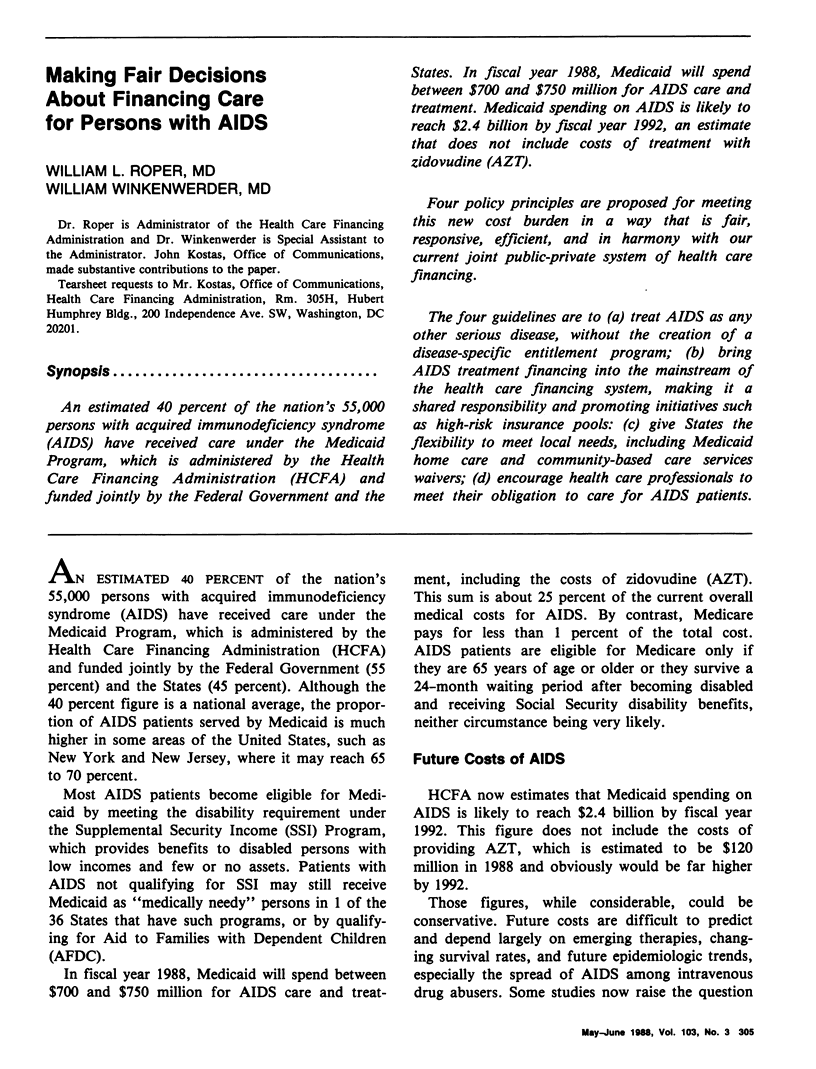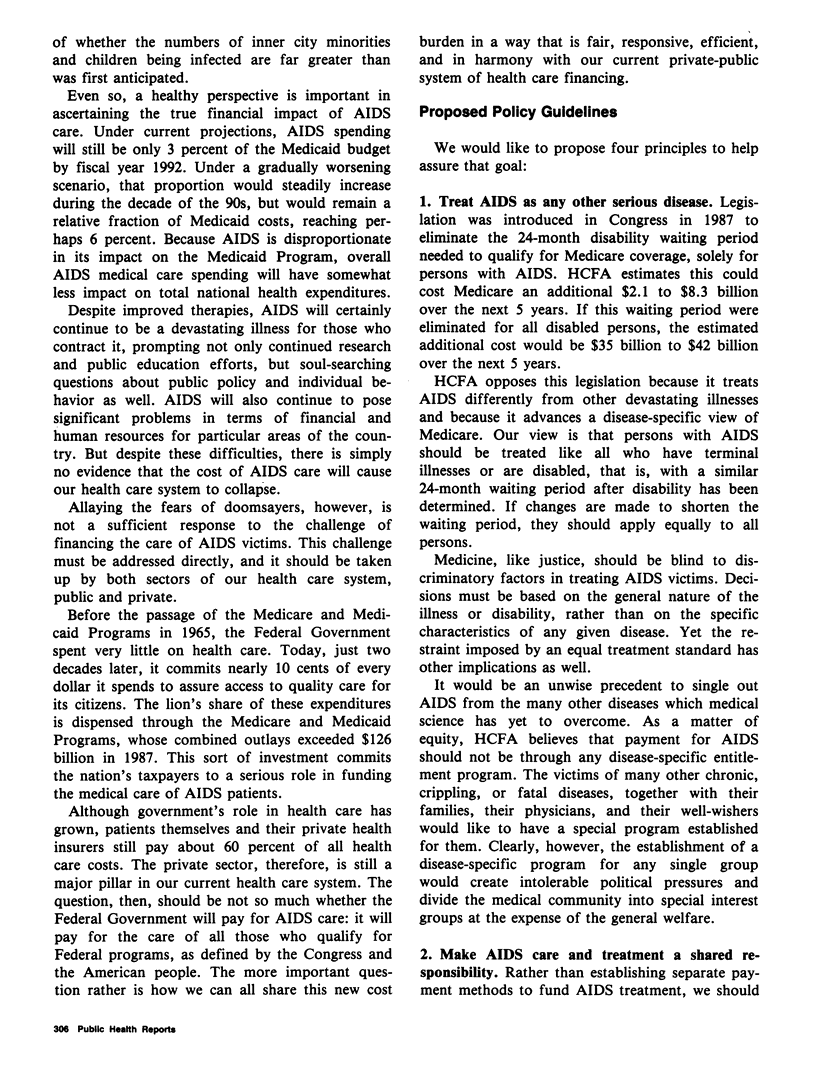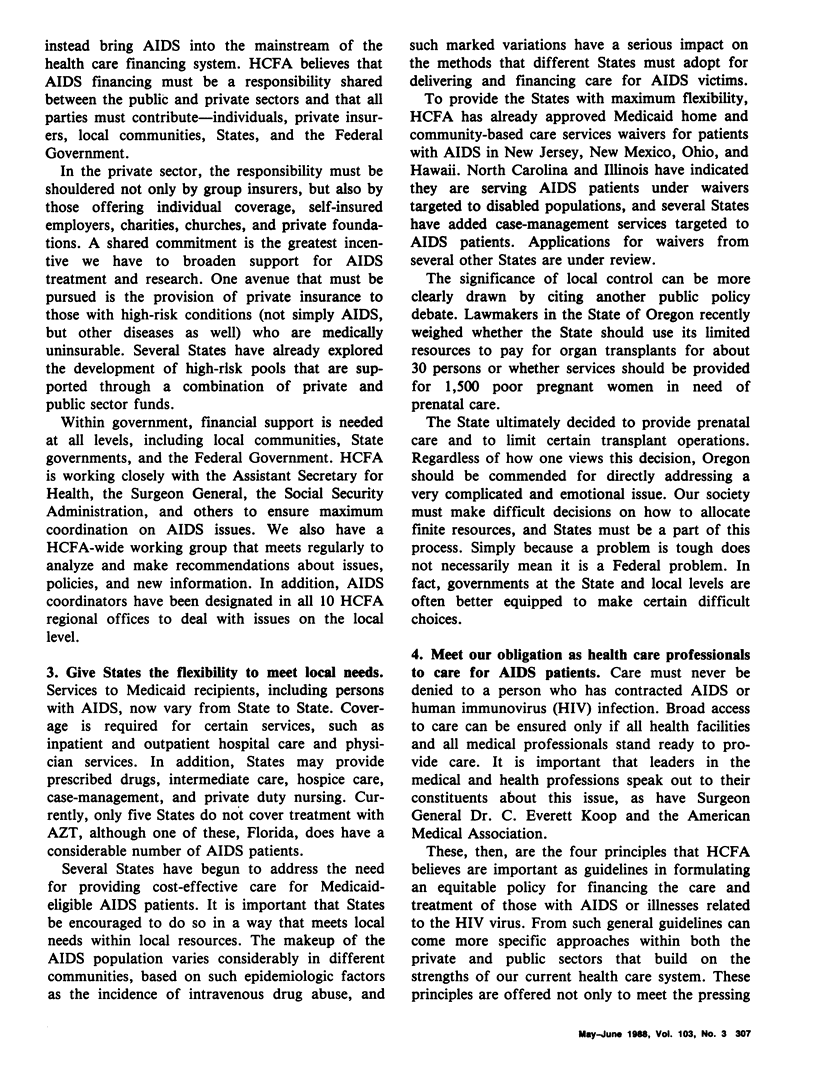Abstract
An estimated 40 percent of the nation's 55,000 persons with acquired immunodeficiency syndrome (AIDS) have received care under the Medicaid Program, which is administered by the Health Care Financing Administration (HCFA) and funded jointly by the Federal Government and the States. In fiscal year 1988, Medicaid will spend between $700 and $750 million for AIDS care and treatment. Medicaid spending on AIDS is likely to reach $2.4 billion by fiscal year 1992, an estimate that does not include costs of treatment with zidovudine (AZT). Four policy principles are proposed for meeting this new cost burden in a way that is fair, responsive, efficient, and in harmony with our current joint public-private system of health care financing. The four guidelines are to (a) treat AIDS as any other serious disease, without the creation of a disease-specific entitlement program; (b) bring AIDS treatment financing into the mainstream of the health care financing system, making it a shared responsibility and promoting initiatives such as high-risk insurance pools: (c) give States the flexibility to meet local needs, including Medicaid home care and community-based care services waivers; (d) encourage health care professionals to meet their obligation to care for AIDS patients.
Full text
PDF





